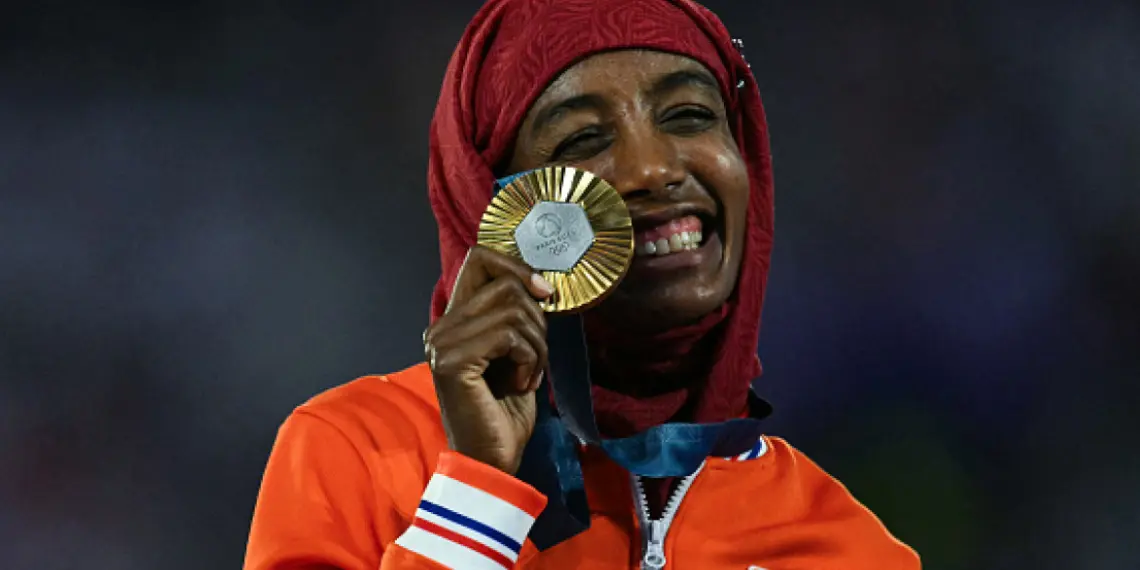In the world of athletics, few moments stand out as both a victory and statement. On August 11, 2024, Sifan Hassan delivered one such moment at the Paris Olympics 2024, not just by crossing the finish line first in the women’s marathon and winning a gold medal but also by stepping onto the podium draped in a hijab. In a city where the hijab has sparked heated debates and restrictive laws, Hassan’s act was nothing short of poetic justice.
Sifan, who already had two bronze medals from the 5,000 and 10,000 meters under her belt, entered the marathon with the kind of determination that makes legends. Battling not just the grueling 26.2-mile course but also the emotional and physical toll of a marathon, she pulled ahead in the final stretch, leaving her competitors—and perhaps a few critics—in the dust.

Wearing a maroon hijab as she received her gold medal, Hassan made a quiet yet resounding statement. In a country where her choice of attire could have barred her from competing if she were a French athlete, the gesture was seen as a powerful nod to Muslim women around the world. It was a visual reminder that the hijab, a simple piece of cloth, carries with it a complex narrative of identity, faith, and defiance against a society that too often tries to dictate what women should wear.
The Hijab Debate: A Woman’s Choice, Not Society’s Business
Let’s talk about the hijab—no, not the way politicians or pundits like to frame it, but what it really is: a personal choice. For many women, it’s a reflection of faith, modesty, and cultural pride. But sadly, it’s been turned into a symbol of controversy, the focal point of debates on secularism and state control. And that’s where the problem lies—when a piece of clothing becomes everyone’s business but the woman wearing it.

More than often, restrictions on the hijab, are often touted as a defence of secularism, a way to keep public spaces neutral. But let’s be real—there’s nothing neutral about telling someone what they can or can’t wear. True secularism should celebrate diversity, allowing people to express their beliefs freely, not suppressing them under the guise of neutrality.
The marathoner’s bold move to wear the hijab as she received her medal was a subtle but powerful rebuke of those who think they can dictate a woman’s wardrobe. It was a reminder that what a woman chooses to wear—whether it’s a hijab, a dress, or a pair of sneakers—is her business and hers alone.




